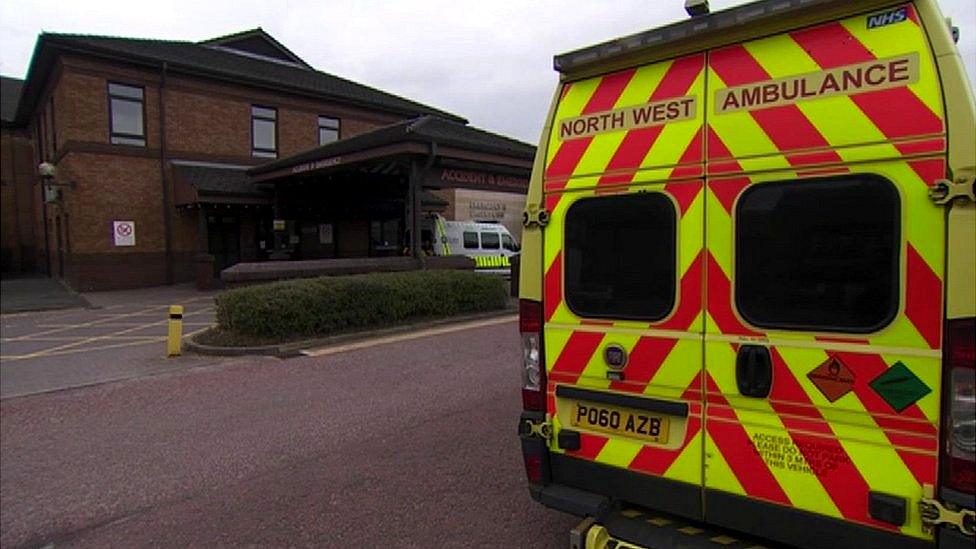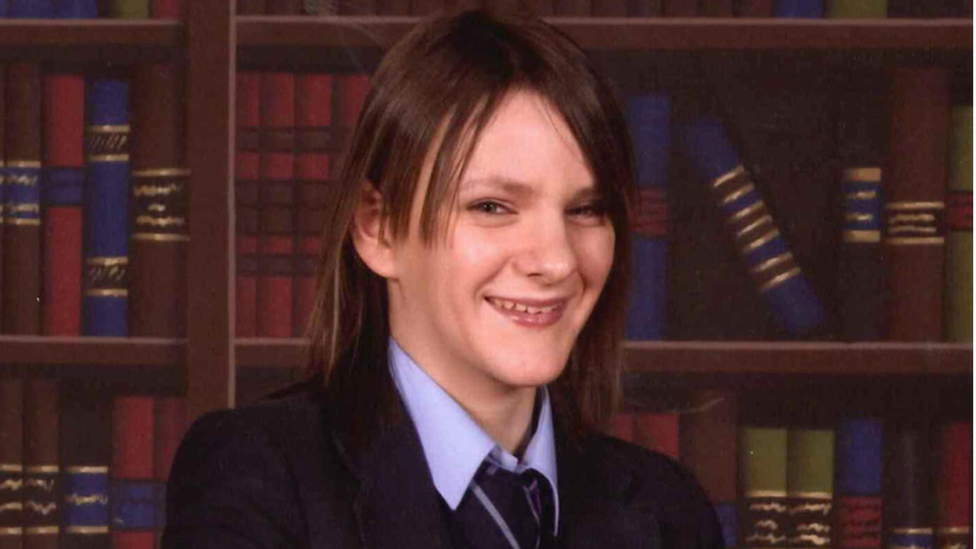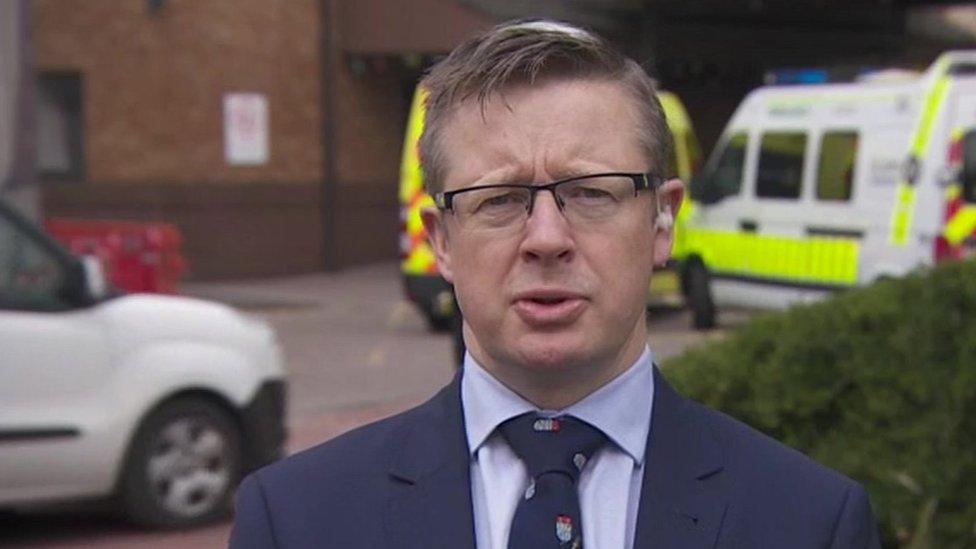Staff shortage prompts Chorley Hospital A&E temporary closure
- Published

Chorley's Hospital accident and emergency department is to close temporarily
A hospital's accident and emergency department is to close temporarily as it cannot "recruit enough staff to provide a safe service".
Chorley Hospital in Lancashire will be downgraded to an urgent care service, a move that will "put lives at risk", the area's MP has claimed.
MP Lindsay Hoyle blamed "bad management".
Lancashire Teaching Hospitals NHS Trust said there were "no other safe options" due to a shortage of doctors.
It has been unable to secure additional locum doctors, making staffing the emergency department "increasingly difficult", it said.
A&E delays reach new record level
Chorley Hospital has eight of the 14 doctors it needs and can therefore only staff less than half the hours required.
Consultants have been working extra shifts to cover the staff rota, but "this is not sustainable and this approach is beginning to affect our ability to cover the consultant rota", the trust said.
Ambulances will take patients to Royal Preston Hospital, 14 miles away, or other hospitals from Monday, the trust said.
Jamie Carson, director at Chorley Council said: "We cannot understand how the problem in Chorley has become so acute when other hospitals do not have to close their A&E service."

Analysis
Nick Triggle, BBC Health Correspondent
The problem with central diktats is that they can have unintended consequences in an organisation as large as the NHS.
When ministers in England last year announced they were going to cap how much hospitals could pay agency staff they felt they had found a solution to a factor increasingly cited as a cause of the financial problems engulfing the health service.
But the temporary downgrading of Chorley's A&E unit suggests it merely tackles the symptoms of the problem rather than the causes.
Chorley is unlikely to be the only site struggling like this - in fact there are suggestions some are playing fast and loose with the cap rules to stay afloat.

In November, a cap on spending on NHS agency staff came into force in England to save £1bn over the next three years.
It meant by April, NHS trusts will not be able to pay agency staff such as doctors and nurses more than 55% for a shift than a permanent member of staff.
From Monday, the emergency department at Chorley will be temporarily replaced by an urgent care service until the staffing crisis is resolved.


Jessica Knight, who was in hospital for five to six months after she was stabbed 20 times while walking in a park, said: "The A&E at Chorley was a major point of my recovery. One of my wounds was in the neck and I might have had a heart attack.
Jessica, who was left for dead and found by a passing cyclist, added: "I was six hours in surgery and had four people working on me. The A&E was critical to my survival.
"If that was to happen now I wouldn't be alive because I might have been taken to a hospital further away."
Jessica's attacker Kristopher Bedder, 21, was jailed for life with a minimum of 12 years.

Prof Mark Pugh, consultant anaesthetist and medical director of the trust, said: "Changing the current service provided at Chorley is a direct response to the immediate and significant staffing problem.
"We simply cannot staff the rotas and it is an unacceptable risk to patient safety to attempt to provide an emergency department service with no doctors available to see people."

Prof Mark Pugh said the pool of doctors they were trying to recruit is 'no longer available'
'Not beholden'
Prof Pugh said they were experiencing great difficulty in recruiting medical staff on a 24/7 basis. "We are actively recruiting today, at this minute, and as soon as that position allows us to safely open the unit again we will do so at the earliest opportunity," he said.
He said they were recruiting doctors as the pool of staff they had relied on was no longer available and it was "a national problem".
He said a lot of other departments in the region are "struggling." He said: "We are not beholden on the agency cap that has been nationally imposed. We have gone out to try and recruit these people and they are no longer there."
In a statement, NHS Improvement said: "It is clear that locally, recruitment of a particular speciality of accident and emergency staff has proved very challenging at the same time as demand for services has jumped by around 14% compared with previous years.
"While the majority of patients are still being seen at Chorley, more seriously ill people will need to be seen at the trust's other A&E facility, in Preston. "
"An ambulance will be stationed at Chorley Hospital so life-threatening cases can be quickly transferred to Preston, although 41% of patients attending Chorley A&E don't have any diagnostic tests or treatment."
It added: "Patient safety is our and the trust's absolute priority."